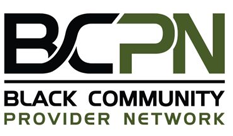Chicago Construction Workforce Equity Ordinance
The unionized construction trades offer Chicagoans a proven pathway to economic security, providing
workers with marketable skills, competitive wages, and full benefits. However, there are systemic
barriers that have historically excluded women and people of color – particularly Black individuals – from
this workforce. The result: in Cook County less than 5% of apprentices are women, and only 6% of
Chicago construction workers are African Americans. Data also shows that 2⁄3 of minority and women
apprentices drop out of union apprentice programs prior to completion.
And our communities are hurting, in part, because of these exclusionary practices. Women and people
of color, under-represented in the construction trades, are overrepresented among the ranks of the
city’s poor. The poverty rate for Black women in Chicago is nearly three times that of white men, and
more than 40% of Chicago’s young Black men are out of school and unemployed. Unionized construction
has the potential to contribute a significant number of good paying, high-quality jobs for these
marginalized groups.
The city, state, and federal governments are committing billions to investing in our infrastructure,
creating thousands of jobs. At the same time, the City is green-lighting large projects that will continue
to enhance well-resourced communities. The question is whether these public and private dollars will be
leveraged to create actual economic opportunities and family-sustaining careers for the communities
most in need.
Now is the time for the City Council to act and implement policies that provide solutions to racial and
gender inequities in the construction trades. To be effective, these solutions must include:
Implementing explicit hiring goals for women, people of color, and women of color, in addition to any
geographic hiring goals.
• The City must conduct a workforce disparity study and utilize the findings to set explicit goals
around total hours worked by race, ethnicity and gender for underrepresented groups on
covered projects.
• Goals should be updated regularly to respond to an expansion in the pipeline of
underrepresented workers.
Access to jobs for new workers through apprenticeship hiring goals.
• Apprenticeships are the entry point for diverse communities into the construction trades,
offering a learn-as-you-earn model that doesn’t rely on student loans. There should be a
minimum number of 20% of work hours performed by apprentices on City-funded projects.
• The City must publicize projections of needed workforce for projects as well as anticipated
apprenticeship openings, and advertise all job openings online.
Robust enforcement by the City.
• The City must create an Office or Division of Construction Workforce Equity to provide oversight
of contractor efforts for equitable hiring and enforcement of equity requirements.
• City staff must Review EEO plans submitted by contractors, analyze weekly payroll reports to
monitor progress and hours worked, and provide on-site monitoring of workforce training
opportunities, work assignments, distribution of available overtime, and access to properly fitted
PPE and sanitary facilities, and provide an opportunity for workers to complete a survey about
their experiences.
• Establish penalties for non-compliance including liquidated damages and enforcing remediation
plans.
Real community oversight through an advisory board.
• The City must establish an advisory board made up of key stakeholders including City
Departments, labor unions, contractors, and community-based organizations to review detailed
workforce data on active projects to evaluate compliance in hiring and retention from
underrepresented groups.
• The advisory board will advise on benchmarks, corrective action and penalties that drive towards
workforce equity.
Safe and respectful worksites that do not tolerate harassment.
• The City must require that all projects provide an industry-specific and culturally relevant
harassment-prevention and respectful worksite program to all workers.
• The City must require contractors to create and enforce strong policies that include harassment
prevention, confidentiality, and anti-retaliation.
Funding for support services to eliminate barriers to employment.
• The City must provide funding for barrier removal for new workers and pre-apprenticeship
training targeted at women and people of color to prepare them to enter the industry.
Data transparency and accountability from contractors and the City.
• The City must create a public website where performance on equity goals by project and
contractor will be shared.
• This data shall be timely provided and include work hours by race and ethnicity, gender, and
trade.
The Chicago Construction Workforce Equity Coalition, led by Chicago Women in Trades, Revolution
Workshop, the Chicago Jobs Council, the Shriver Center on Poverty Law and Women Employed, has
drafted comprehensive ordinance language in collaboration with tradeswomen of color, minority
contractor organizations, and other industry stakeholders.
The Chicago Construction Workforce Equity Ordinance takes concrete action to improve access to and
retention in these careers for underrepresented groups, requires the City to provide the staffing and
resources to implement and enforce new requirements, brings all industry stakeholders together to
assist with oversight, and requires public reporting of data to provide accountability on performance.
Please contact Beth Berendsen at bberendsen@cwit.org or (312) 259-4459 to sign-on as a sponsor of
this ordinance.

